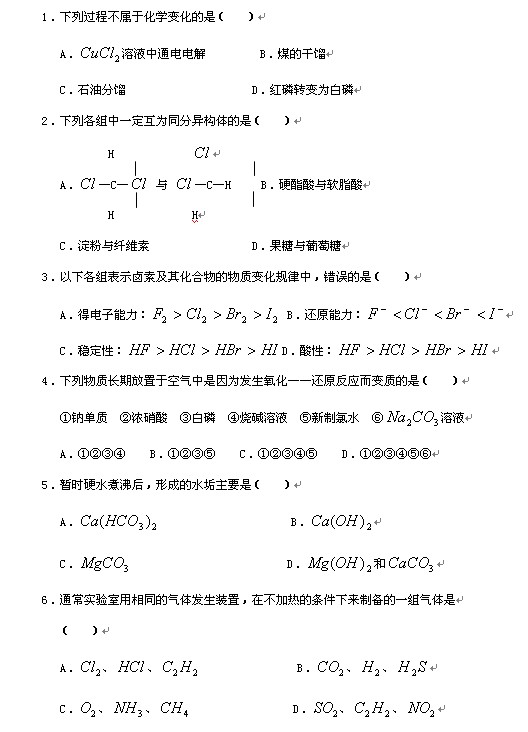2022年成人高考高起點(diǎn)《英語(yǔ)》復(fù)習(xí)資料(二)
2022年成人高考高起點(diǎn)《英語(yǔ)》復(fù)習(xí)資料(二)
6.主語(yǔ)由either…or,neither…nor,not only…but also連接時(shí),謂語(yǔ)形式由最鄰近的主語(yǔ)決定。
Not only you but also I am wrong。
Neither my aunt nor I am going out this afternoon。
Either you or she is to do the work。
7.主語(yǔ)中有and,如果表示單一概念,謂語(yǔ)動(dòng)詞用單數(shù)。
The bread and butter is nice。
8.主語(yǔ)前有many a,more than one修飾時(shí),謂語(yǔ)動(dòng)詞用單數(shù)形式。
Many a book has been read by the students。
★many a book=many books
More than one person has been to the Great Wall。
9.集合名詞作主語(yǔ),當(dāng)作整體看待時(shí),謂語(yǔ)動(dòng)詞用單數(shù)形式,當(dāng)作每個(gè)獨(dú)立的個(gè)體看待時(shí),謂語(yǔ)動(dòng)詞用復(fù)數(shù)。
The committee meets once a year.(作為整體)
The committee are having a meeting now.(作為獨(dú)立個(gè)體)
People,police作主語(yǔ)時(shí),謂語(yǔ)動(dòng)詞用復(fù)數(shù)形式。
The police have come to arrest him。
不定冠詞的基本用法
1.表示“一”的含義。
Give me a pen please。
We go shopping twice a week。
2.泛指某個(gè)人或東西。
Yesterday we visited an English secondary school。
She picked up a magazine and began to read。
3.表示一類人或東西。
He works as a language teacher in that university。
As a writer,he is successful。
Even a child can answer this question。
可數(shù)名詞單數(shù)出現(xiàn),泛指用不定冠詞,特指用定冠詞。一個(gè)可數(shù)名詞的單數(shù)不能自己?jiǎn)为?dú)出現(xiàn)
定冠詞的基本用法
1.表示特定的人或東西。
Give me the magazine。
Have you decided on the prices yet?
The book on the table is an English dictionary。
Beijing is the capital of China。
2.復(fù)述前文提到的人或東西。
Last week,I saw a flim.The film is about a love story between two middle-aged people。
The old man saw a house in the field.He went into the house and found a beautiful girl sitting there and singing。
3.用于形容詞前面,代表一類人或東西。
the poor窮人the rich富人the wounded受傷的人
the sick生病的人the beautiful美麗的事物the old老年人
the young年青人
4.用于表示世界上獨(dú)一無(wú)二的東西的名詞前面。
the moon,the sun,the earth
The moon moves aroud the earth。
We have friends all over the world。
Dont build castles in the air。
5.用于序數(shù)詞、方位名詞、形容詞與副詞的最高級(jí)前面,副詞最高級(jí)前面的the可以省略。
January is the first month of the year。
The sun rises in the east。
Japan lies to the east of China。
Beijing lies in the north of China。
Ireland lies on the Great Britain。
At the Childrens Palace,some children learn to play the piano,others learn to play the violin。
Last week we went to the theatre。
Among the three girls she speaks English the best。
“東、南、西、北”作副詞時(shí),前面不加冠詞。
We are walking south。
形容詞最高級(jí)前若有物主代詞,就不加定冠詞。
Monday is my busiest day。
6.用于姓氏的復(fù)數(shù)形式前,表示一家人或夫婦倆。
The Lius have moved to Guangzhou。
The Simths came to China for visit in 1996.
7.不可數(shù)名詞前面通常不加定冠詞,但若有限制性定語(yǔ)修飾,或表示特定部分、特定內(nèi)容時(shí),前面需加定冠詞。
Drink some water。
Is the water in the well fit for drink?
What do you think of the music?
He cant take the advice his mother gives him。
<<<相關(guān)閱讀:2022年成人高考高起點(diǎn)《英語(yǔ)》復(fù)習(xí)資料(一)
版權(quán)聲明:本文“2022年成人高考高起點(diǎn)《英語(yǔ)》復(fù)習(xí)資料(二)”來(lái)自“甘肅成人高考網(wǎng)”,內(nèi)容來(lái)自互聯(lián)網(wǎng),有關(guān)成人高考高起專、高起本、專升本的報(bào)名時(shí)間、入口、費(fèi)用等信息內(nèi)容請(qǐng)以甘肅省教育考試院官網(wǎng)為準(zhǔn)。若轉(zhuǎn)載,請(qǐng)注明:http://www.zhaomingming.cn/beikao/2219.html,若本站收錄的信息無(wú)意侵犯了版權(quán)等相關(guān)問(wèn)題,請(qǐng)給我們致電或留言,我們會(huì)第一時(shí)間處理和回復(fù)。











文章評(píng)論(已有條評(píng)論)